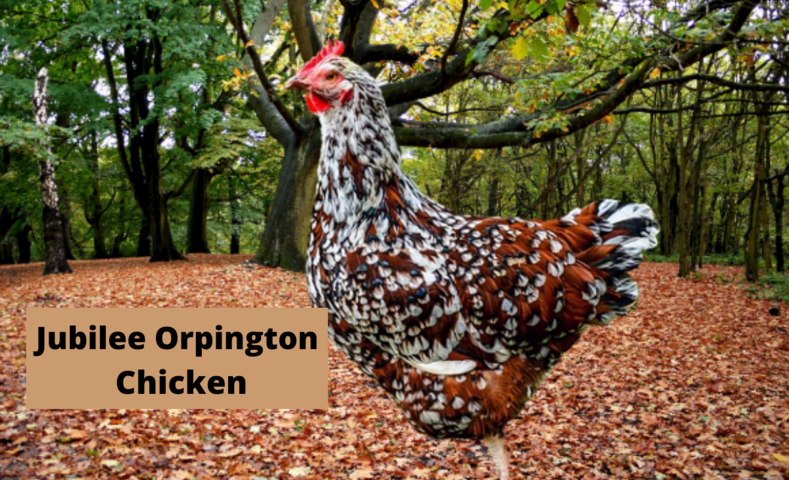Another chicken breed that is beloved by many chicken-keepers is the Jubilee Orpington. How does this chicken differ from other birds in the backyard flock? What are their temperaments, egg-laying abilities, and size? And finally, what are some tips for raising jubilee Orpingtons at home?
Read on to learn more about Jubilee Orpingtons and how to raise them successfully.
Overview: Background and History of Jubilee Orpington Chickens
As the name suggests, Jubilee Orpington has a royal history. It was presented in the year of Queen Victoria’s diamond jubilee in 1897. That’s where their name Jubilee Orpington Chicken came. They were developed by William Cook, the creator of the Buff Orpington breed. It was believed that Jubilee Orpingtons were originally a cross between Buff Orpingtons and possibly Speckled Sussex, though today they are considered their own distinct breed.
Diamond Jubilee Orpingtons quickly became popular in England and America for egg production and friendly dispositions. They were also good meat birds, as they grew to be quite large.
Today, Jubilee Orpingtons are still quite popular among chicken-keepers, especially those who want a docile breed that lays plenty of eggs. They are known to be friendly and easy to handle, making them suitable as backyard or farm chickens.
Breed Standard and Appearance
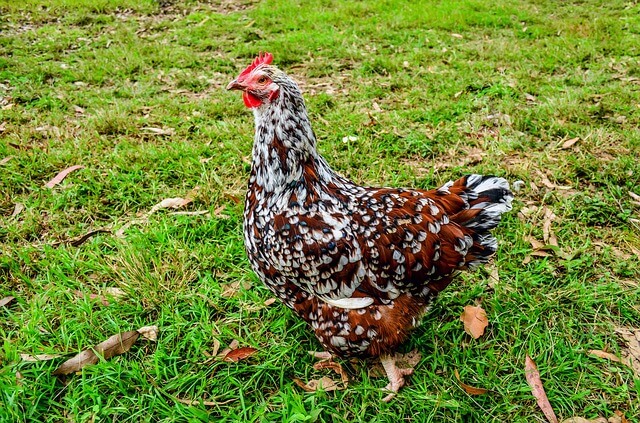
As Jubilee Orpington birds are a relatively new breed, there are not many varieties to speak of, and the breed standard is very similar to that of other Orpingtons.
However, their coloration can vary slightly from bird to bird. Some may have more white speckles on their neck and tail than others.
Some Orpington chicken breeds may have a few copper or gold feathers mixed with their black plumage. Their feather pattern is comparable to Speckled Sussex, but the Orpington carriage makes all the difference.
They also have a large, rounded body with short legs. They are among the largest breeds and can weigh 7 to 8 pounds when fully grown.
Typical Behavior & Temperament of Jubilee Orpington
Jubilee Orpington is a cold-hardy bird. Thanks to their dense feathers! They love to eat and are generally friendly. Their docile nature makes them legitimate lap chickens and great pets for beginners in chicken keeping.
They get along well with other chickens of all personality types and make good additions to backyard flocks.
Jubilee Orpington Hens Egg Laying & Color
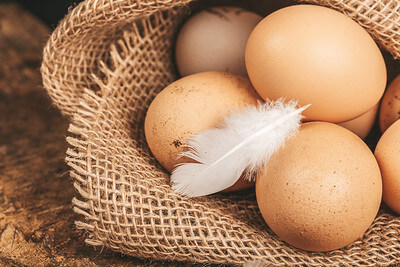
Jubilee Orpington hens are known to be good egg layers, with the ability to produce 200 to 280 eggs per year that are typically large and brown in color. These eggs can be collected from the coop daily and stored in a cool, dry place. If you want to raise them for meat purposes, they’re ready around 22 weeks.
Jubilee Orpington Chicken Size
Jubilee Orpington poultry is a large breed of chicken, typically weighing 7-8 pounds. They usually stand around 14 inches tall.
Jubilee Orpingtons Cost
The cost of jubilee Orpingtons can vary depending on several factors, including breeders, availability, and the size and quality of the chicks. Generally speaking, jubilee Orpingtons can range in price from $20-50 per chick.
You can buy this breeding stock in online stores or hatcheries..
Lifespan
Jubilee Orpington birds are a relatively new chicken breed; as such, little is known about their specific breeding and lifespan. However, Orpingtons are generally considered a hardy and long-lived chicken breed.
Health Issues and Care
Jubilee Orpington birds are generally quite hardy and healthy chickens. However, they may experience the same health issues as other chicken breeds, including mites and worms.
Predators & Pests
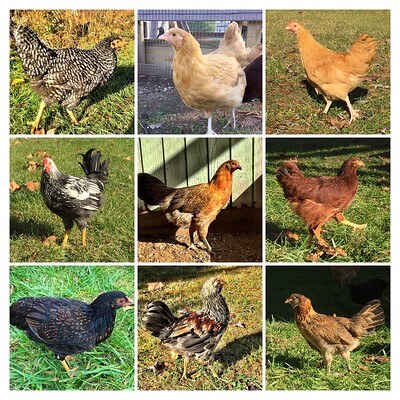
Jubilee Orpington birds are relatively low-maintenance chickens that do not require much day-to-day care. However, they must be kept in a secure coop and run area to protect them from predators.
Jubilee Orpington chickens are vulnerable to predators such as hawks, owls, foxes, and coyotes. They are also susceptible to various chicken pests, such as mites and worms.
Keeping Orpington chickens free of predators and pests in a secure coop and run area is important. This area should have a solid roof to protect them from aerial predators and should be enclosed with a wire fence to keep out ground predators.
It is also good to regularly check Orpington chickens for any signs of parasites or illness. Baby chicks require extra care against parasites and disease.
Healthy Diet
A good quality chicken feed is the foundation of a nutritious diet for the flock. This feed should be supplemented with fresh greens, vegetables, and occasional treats such as scraps from the kitchen.
Proper Nutrition
To keep Orpington chickens healthy and productive, it is important to ensure they are getting the proper nutrition. A good quality chicken food is essential and should be supplemented with fresh greens, vegetables, and occasional treats. Grit and oyster shells are also important for proper digestion and strong bones.
Grit helps Orpingtons grind their food, while oyster shells provide them with additional calcium for strong bones and healthy egg production.
They should have access to good quality chicken feed and fresh water at all times.
Feeding & Watering
In addition to good quality chicken food, Orpingtons will also need regular access to clean water and fresh greens and vegetables. Providing a source of shade or shelter in the run area can also be helpful during hot days.
Ensuring that they have everything they need for optimal health is important for good egg production.
Tips for Raising Jubilee Orpington Chickens
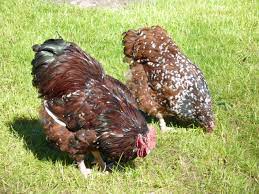
Preparation
Preparation is key when raising any type of chicken, and Jubilee Orpington birds are no exception. Before you bring your chickens home, set up a comfortable and safe coop for them to live in.
Coop, Nesting boxes, and Run Area
There are many different coops and run options available for jubilee Orpington chickens. Popular choices include:
- Movable or portable chicken coops
- Chicken tractors
- Free-range pens
- Larger fixed coops with attached runs.
Nesting boxes should also be provided for Orpington chickens to lay their eggs in. These boxes should be placed in a quiet, dark coop area or run to give the chickens privacy.
An area where Orpington chickens can get some fresh air and exercise is also important. This area should be well-shaded to protect the chickens from direct sunlight and have a good clean water source.
Keep Things Clean and Cool
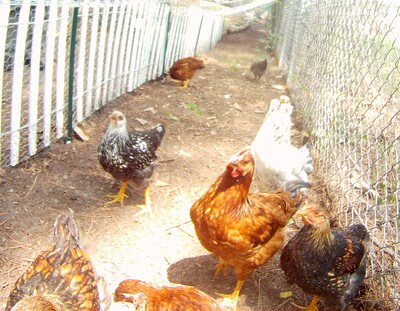
Regularly cleaning the Orpington coops and runs is important for maintaining these chickens’ clean environment. Additionally, these birds will do best in a cool climate with temperatures of 50-75 degrees Fahrenheit.
Summary: Jubilee Orpington Chicken
If you are looking for an easy-care-for chicken that can deliver plenty of eggs, Jubilee Orpingtons may be the right breed.
They are a dual-purpose chicken breed due to their large size and egglaying capacity. Raising Orpingtons can be a rewarding experience for any chicken enthusiast with little knowledge and preparation. Beginners can make lovely pets due to their calm and friendly temperament.
Whether you want to add Jubilee Orpington chickens to your existing flock or start a new flock from scratch, you will enjoy having these lovely birds around.

